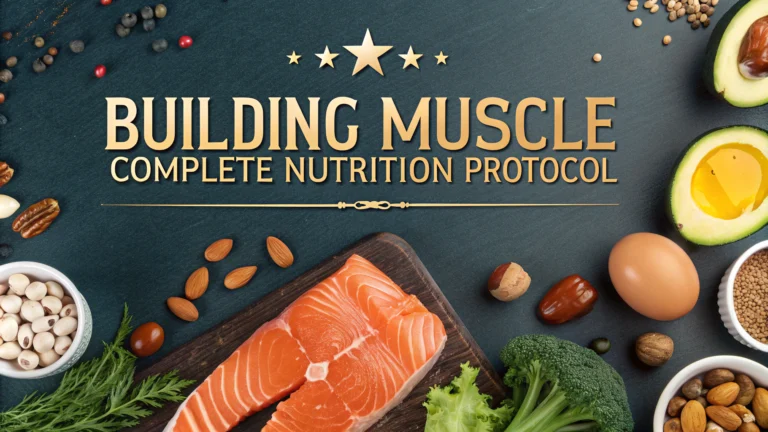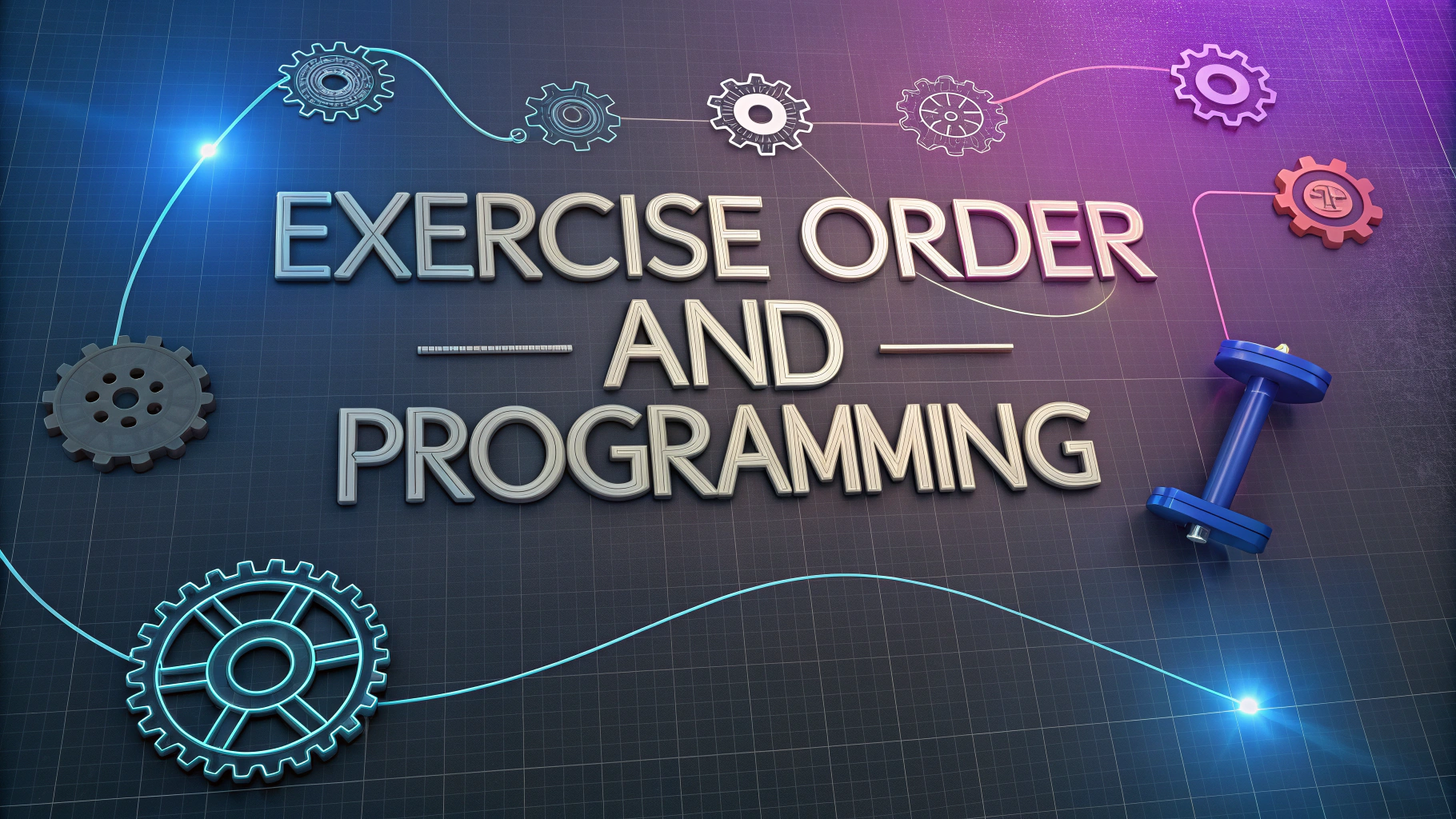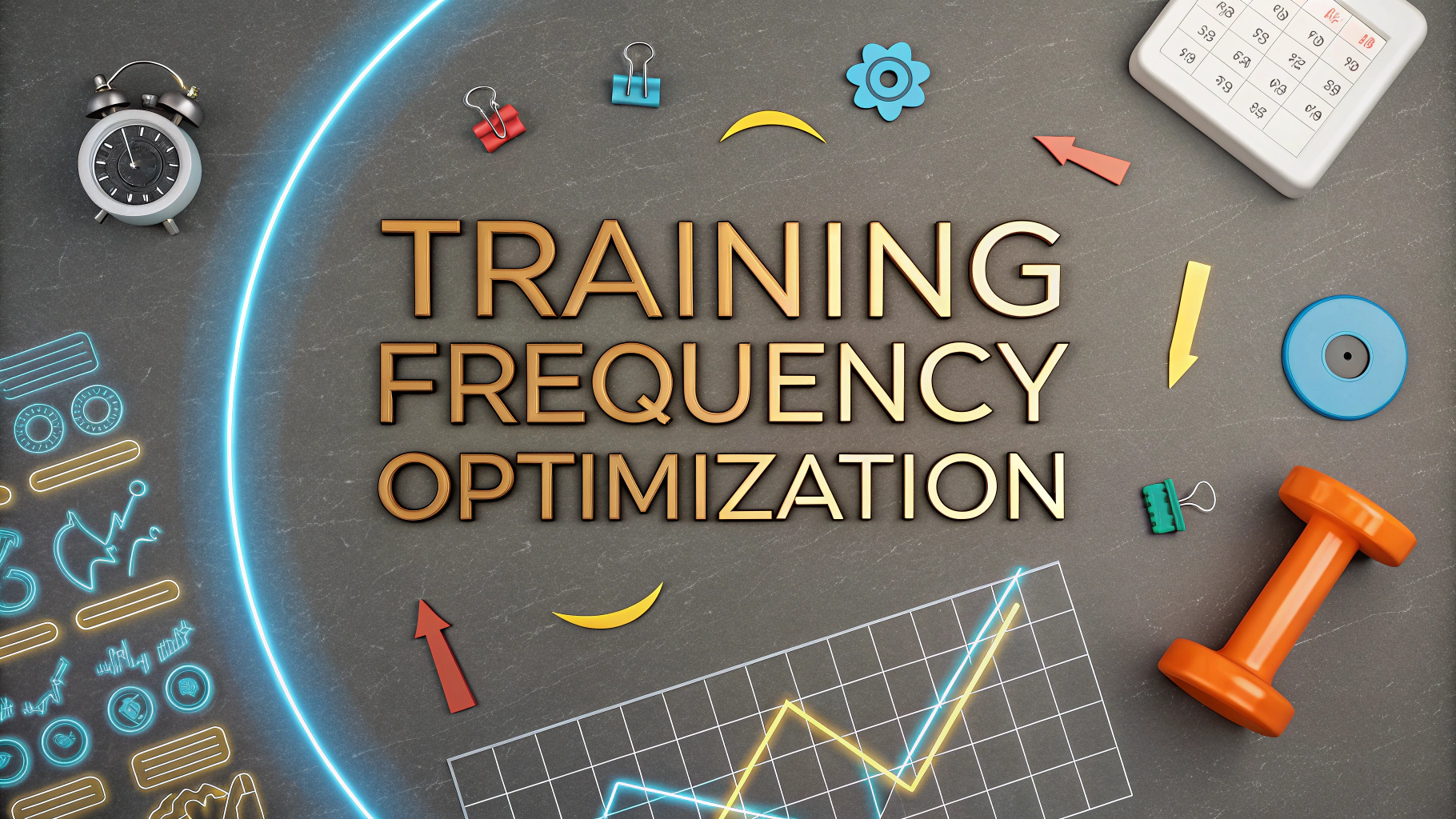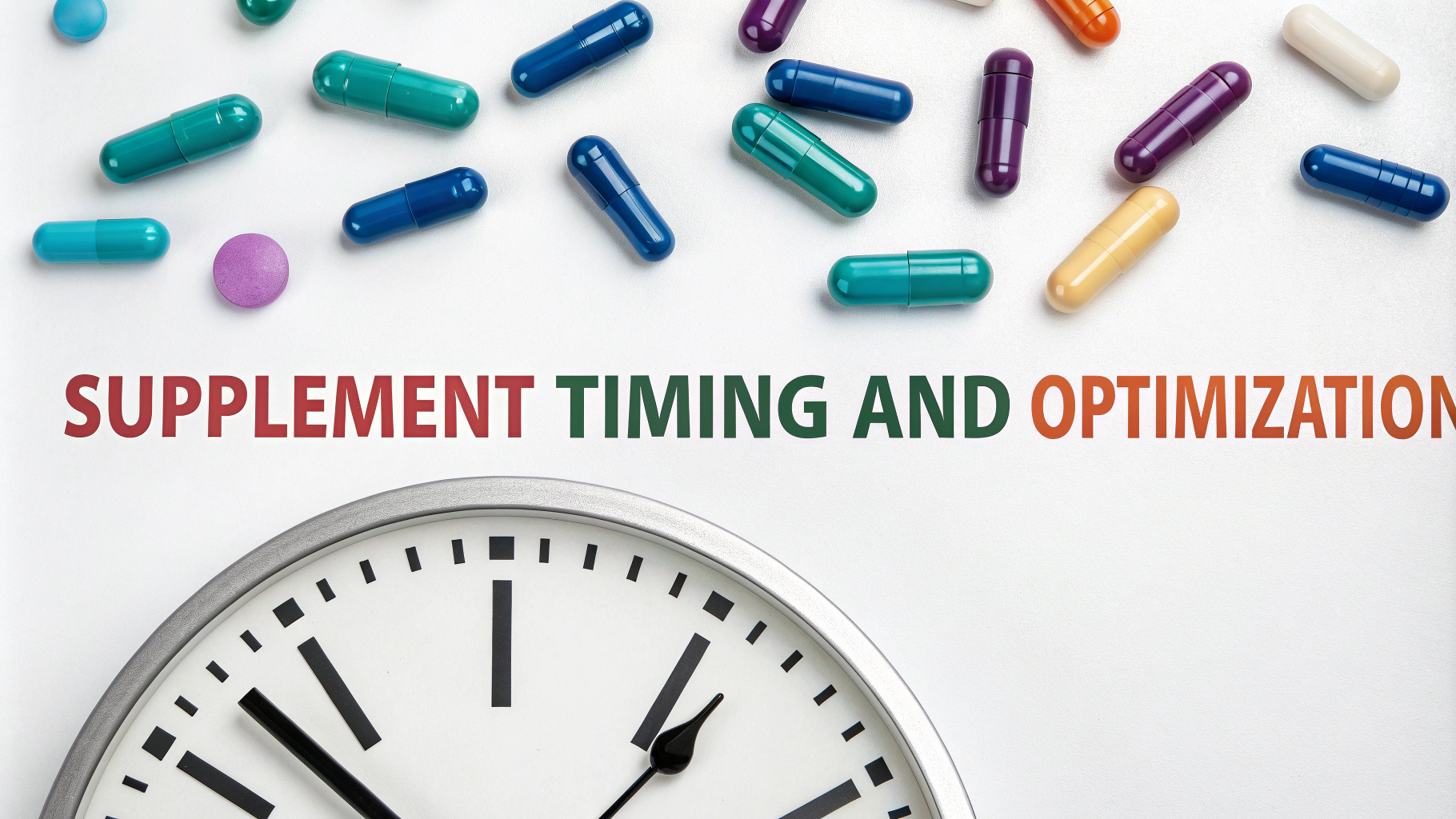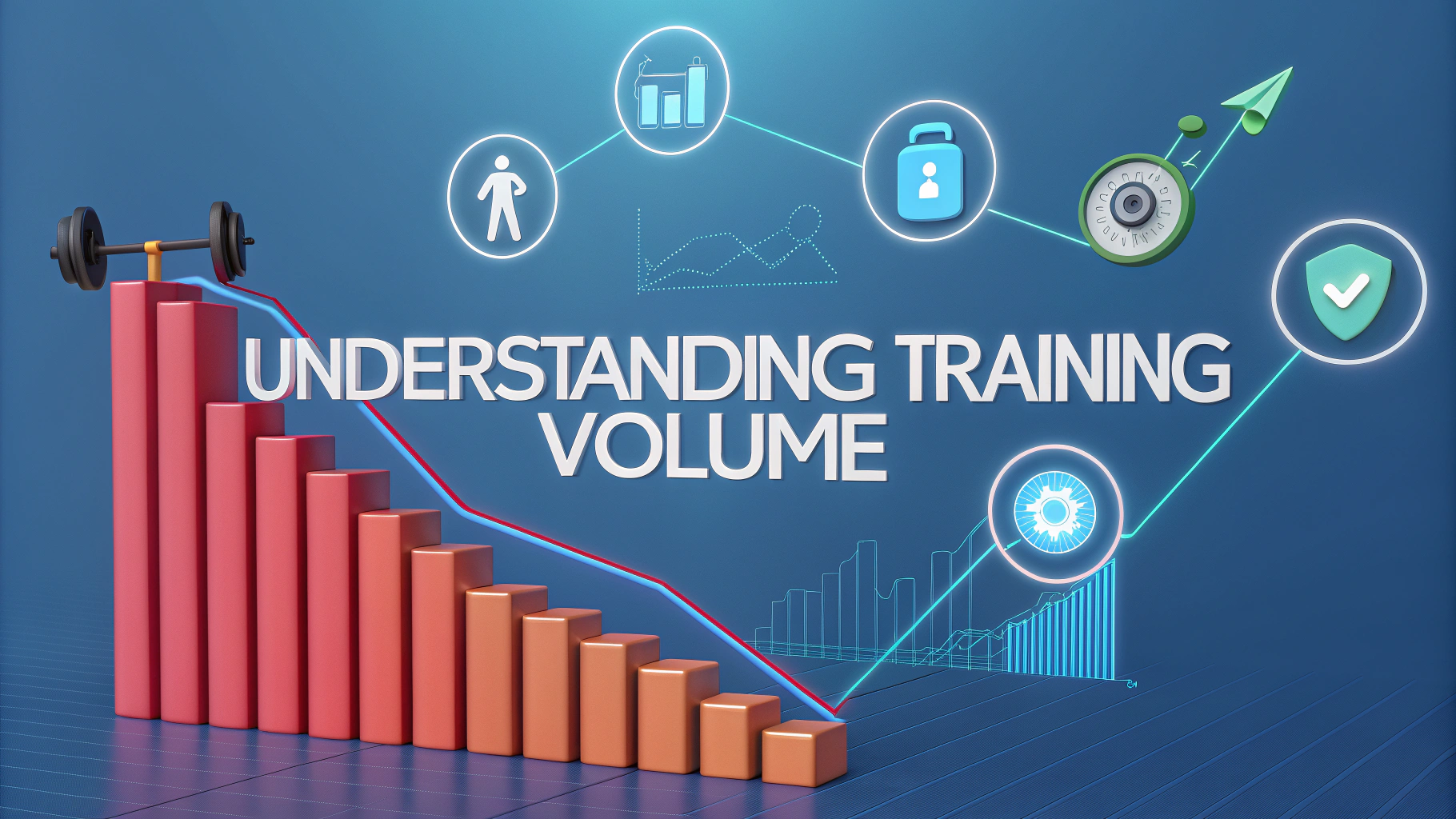Building muscle requires a well-planned nutrition strategy that goes beyond just eating more protein.
Quick Overview: Essential Nutrients for Muscle Growth
Protein forms the building blocks of muscle tissue, with a recommended intake of 1.6-2.2g per kg of body weight for active individuals.
- Complete proteins (contain all essential amino acids):
- Chicken breast: 31g protein per 100g
- Eggs: 6g protein per large egg
- Greek yogurt: 10g protein per 100g
- Whey protein: 24g protein per 30g scoop
Carbohydrates: Fuel for Training
Complex carbohydrates provide sustained energy for intense workouts and help prevent muscle breakdown.
- Best carb sources:
- Sweet potatoes
- Brown rice
- Oats
- Quinoa
Healthy Fats: Supporting Hormone Production
- Essential fat sources:
- Avocados
- Nuts and seeds
- Olive oil
- Fatty fish
Meal Timing for Muscle Growth
| Timing | What to Eat |
|---|---|
| Pre-workout (1-2 hours before) | Complex carbs + moderate protein |
| Post-workout (within 30 min) | Fast-digesting protein + quick carbs |
| Before bed | Slow-digesting protein (casein) |
Supplements That Support Muscle Growth
- Essential supplements:
- Whey protein: 20-30g post-workout
- Creatine monohydrate: 5g daily
- Essential amino acids (EAAs): during training
Hydration Guidelines
Drink 3-4 liters of water daily, with additional intake during training sessions.
Sample Muscle-Building Meal Plan
- Breakfast: Oatmeal with whey protein, banana, and almonds
- Snack: Greek yogurt with berries
- Lunch: Chicken breast, brown rice, vegetables
- Pre-workout: Sweet potato, tuna
- Post-workout: Whey protein shake, fast-digesting carbs
- Dinner: Salmon, quinoa, green vegetables
- Before bed: Casein protein or cottage cheese
Track your food intake using apps like MyFitnessPal or Cronometer for optimal results.
Common Nutrition Mistakes to Avoid
- Not eating enough total calories
- Skipping post-workout meals
- Insufficient protein intake
- Neglecting vegetables and micronutrients
- Poor hydration
For personalized nutrition advice, consult a registered dietitian or certified nutrition coach.
Recovery and Rest
Proper nutrition becomes ineffective without adequate recovery time and quality sleep. Aim for 7-9 hours of sleep per night to optimize muscle growth and recovery.
Recovery Nutrition Tips
- Include anti-inflammatory foods:
- Berries
- Green leafy vegetables
- Turmeric
- Ginger
Adjusting Nutrition for Different Goals
Bulking Phase
- Increase calories by 10-20% above maintenance
- Higher carbohydrate intake
- Moderate increase in healthy fats
Cutting Phase
- Reduce calories by 20-25%
- Maintain high protein intake
- Lower carbohydrates strategically
Conclusion
Successful muscle building requires a comprehensive nutrition strategy that includes:
- Consistent protein intake throughout the day
- Strategic meal timing around workouts
- Adequate calories from quality food sources
- Proper hydration and supplementation
- Regular monitoring and adjustments
Remember that nutrition plans should be personalized based on individual goals, body type, and training intensity. Regular assessment and adjustments are key to optimal results.
FAQs
- How many calories should I eat to build muscle effectively?
To build muscle, consume 300-500 calories above your maintenance level. Calculate your maintenance calories by multiplying your body weight in pounds by 15-17, then add the surplus. - What’s the optimal protein intake for muscle growth?
Consume 1.6-2.2 grams of protein per kilogram of body weight daily. For most individuals, this translates to approximately 0.8-1 gram per pound of body weight. - Should I eat before or after my workout for muscle gain?
Both are important. Consume a meal containing carbs and protein 2-3 hours before training, and have a post-workout meal within 2 hours after training containing 20-30g protein and fast-digesting carbs. - Which protein sources are best for muscle building?
Complete protein sources like chicken, fish, lean beef, eggs, dairy, whey protein, and soy are optimal. These contain all essential amino acids needed for muscle growth. - How important are carbohydrates for building muscle?
Carbohydrates are crucial as they fuel workouts and promote insulin release, which helps drive nutrients into muscle cells. Aim for 2-3g per pound of body weight daily from sources like rice, potatoes, and oats. - Do I need supplements to build muscle effectively?
While not mandatory, certain supplements like whey protein, creatine monohydrate, and essential amino acids can support muscle growth when combined with proper nutrition and training. - How should I time my meals throughout the day?
Consume 4-6 meals spaced 3-4 hours apart to maintain positive protein balance and steady energy levels. This typically includes breakfast, lunch, pre-workout, post-workout, and dinner meals. - What role do healthy fats play in muscle building?
Healthy fats support hormone production, including testosterone, which is crucial for muscle growth. Aim for 0.5-0.8g per pound of body weight from sources like avocados, nuts, olive oil, and fatty fish. - How much water should I drink for optimal muscle growth?
Consume 0.5-1 ounce of water per pound of body weight daily. Proper hydration is essential for nutrient transport, recovery, and overall muscle function. - Should I eat differently on training versus rest days?
Reduce carbohydrate intake slightly on rest days while maintaining protein intake. Total calories can be decreased by 10-20% on non-training days while keeping protein high for recovery.
